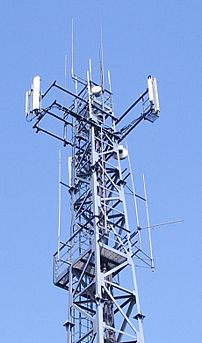Finally, the issue of Net Neutrality has arrived on South African shores, with money gluttons MTN and Vodacom making attempts at garnishing WhatsApp’s revenue through something shrouded in the phrase “OTT regulation”.
Put simply, Vodacom and MTN want to charge content providers for providing their content to the networks’ clients.
It’s complete nonsense, and shows a lack of understanding of the tech industry and the future of telecommunications, and of course, smacks of greed grown on the back of collapsing SMS revenues. (A gift of a revenue, as SMS was actually designed as a network control channel, not as a chargeable service of GSM).
If the parliamentary committee that has suddenly and mysteriously taken it upon themselves to hold hearings on the matter actually find a way to implement rnew controls, a very bad precedent will be set for the future of South Africa’s Internet. Reckless regulation could lead to Telcos having the ability to hold to ransom any service that could potentially transit their network; Google Mail, Dropbox, Youtube, Netflix, Facebook, Vimeo, Showmax, Skype, Apple, and every website and web service on the planet.
The knock-on effect is catastrophic to entrepreneurs and small businesses. For example the small online radio station Interwebsradio.com. They certainly do not have the revenue to pay Vodacom or MTN if someone on the MTNVoda-networks listens for a few hours to their station. Any young upstart product from South Africa, that could potentially change the world, will instead be squashed with punitive charges and never see the light of day. I certainly cannot and will not pay MTN or Vodacom if they charge me to have someone read this blog post.
MTN and Vodacom and the likes (Telkom, Neotel) will delight in further extending their anti-competitive business practices into controlling Internet connectivity and speed in South Africa. They will have no shame in selling their content from their portals to their customers while censoring competition from other content providers. It’s a small step from blocking and regulating just WhatsApp, to then developing walled-garden applications WhatsAppVoda or MTNiMessage which only work on their respective networks and are subject to the billing whims of these powerful companies.
It’s double-dipping. It’s bad for all consumers.
Cell C, on the other hand, have been championing an opposite voice; that of non-regulation of OTT services, and this I do applaud. They are actually trying to stand up for the consumer, which is fantastic. Or is it?
You see Cell C love to “zero-rate” certain services. (Charge customers nothing for their data usage). In fact, Cell C currently zero-rate WhatsApp traffic. In the same way MTN has zero-rated Twitter and their own FrontRow movie service, and Telkom zero-rates Showmax and MTN zero-rates WeChat and CliffCentral.com. And Vodacom zero-rates some digital classroom initiatives. And this is just as big a problem. It’s anti-competitive in exactly the same fashion as OTT regulation. It’s just portrayed as customer friendly and easily disguised as being of benefit to the consumer.
Net Neutrality is the principle that Internet service providers should enable access to all content and applications regardless of the source, and without favoring or blocking particular products or websites
Zero-rating creates tiers and classes of data that are not even for all. It’s a devil just as evil as OTT regulation.
It has to be net neutral or bust. None should have privilege at the expense of another.
Both OTT regulation and zero-rating are stances against Net Neutrality, introducing imbalances that a country filled with inequality can surely do without.
To read more, there’s a collection of articles on Net Neutrality in South Africa here.





![Reblog this post [with Zemanta]](https://i0.wp.com/img.zemanta.com/reblog_e.png?w=580)
 Tags:
Tags: